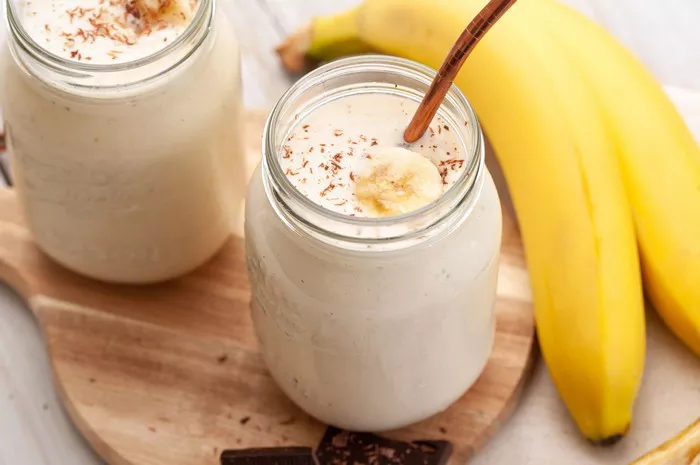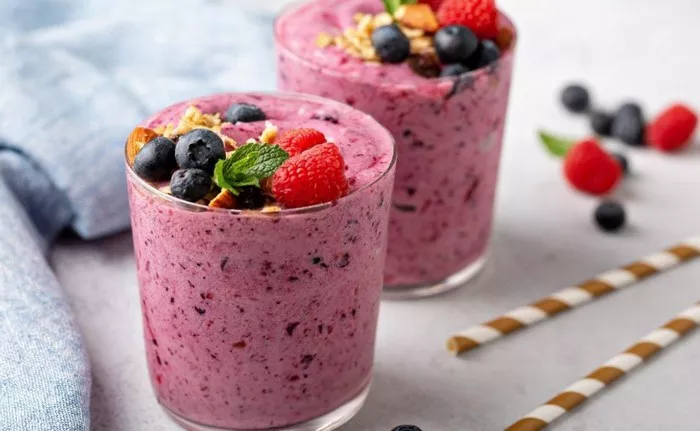When it comes to dieting, people often look for quick, easy, and tasty solutions. Smoothie diets have gained immense popularity due to their promise of rapid weight loss, nutritional value, and convenience. But is a smoothie diet really good for you? Let’s delve into this topic comprehensively to understand the pros and cons, potential benefits, and risks associated with smoothie diets.
What is a Smoothie Diet?
A smoothie diet typically involves replacing one or more meals per day with smoothies made from fruits, vegetables, dairy or plant-based milk, and sometimes additional ingredients like protein powder, seeds, nuts, and supplements. These diets often claim to promote weight loss, increase energy levels, improve digestion, and provide a nutrient-dense intake.
Smoothies are generally easy to prepare and can be customized according to individual tastes and dietary preferences. They are also portable, making them a convenient option for busy lifestyles.
Potential Benefits of a Smoothie Diet
High Nutrient Intake
Smoothies can be an excellent way to incorporate a variety of fruits and vegetables into your diet. Since they are blended, even people who don’t enjoy the texture or taste of certain produce can benefit from their nutrients.
Fruits and vegetables are packed with vitamins, minerals, antioxidants, and fiber, which are essential for maintaining good health. By consuming a smoothie daily, you can ensure that you meet your daily requirements of essential nutrients.
Weight Loss
Smoothie diets are often promoted as a quick way to lose weight. Since smoothies are typically low in calories compared to whole meals, replacing meals with smoothies can create a calorie deficit, leading to weight loss.
However, it’s important to note that weight loss is not just about calorie restriction. The quality of the calories you consume matters too. Smoothies made with whole fruits, vegetables, and healthy fats can provide a balanced intake of nutrients while aiding in weight loss.
Convenience
Smoothies are incredibly convenient. You can prepare them in advance, store them in the fridge or freezer, and take them with you wherever you go. This makes them an excellent option for people with busy schedules who struggle to find time to cook healthy meals.
Improved Digestion
Blending fruits and vegetables can make it easier for your body to digest and absorb nutrients. Smoothies are often easier on the digestive system than whole foods, especially for people with digestive issues like irritable bowel syndrome (IBS) or Crohn’s disease.
Hydration
Smoothies are a great way to stay hydrated. They contain a high water content from fruits and vegetables, which can help keep your body well-hydrated. Proper hydration is crucial for overall health, including digestion, skin health, and cognitive function.
Customizable
Smoothies can be customized to fit various dietary needs and preferences. Whether you’re vegan, vegetarian, gluten-free, or following a specific diet plan, you can create smoothies that suit your requirements.
Potential Risks and Drawbacks of a Smoothie Diet
Calorie Deficit Concerns
While calorie restriction can lead to weight loss, it can also have negative effects on your body if done incorrectly. Consuming too few calories can slow down your metabolism, lead to muscle loss, and cause nutrient deficiencies.
It’s important to ensure that your smoothies are balanced and contain enough calories, protein, and healthy fats to support your body’s needs.
Lack of Fiber
While smoothies contain fiber from fruits and vegetables, blending them can break down some of the fiber, making it easier to digest. This can be beneficial for people with digestive issues, but it can also lead to a lack of fiber in your diet if you rely solely on smoothies.
Fiber is crucial for maintaining good digestion, preventing constipation, and controlling blood sugar levels. To ensure you’re getting enough fiber, try to include some whole fruits and vegetables in your diet along with smoothies.
Sugar Content
Smoothies made with fruits can be high in natural sugars. While natural sugars are better than refined sugars, consuming too much can still lead to health issues like weight gain, insulin resistance, and dental problems.
To manage your sugar intake, try to balance your smoothies with vegetables, which are low in sugar but high in nutrients. You can also use low-sugar fruits like berries and citrus.
Lack of Satiety
Smoothies may not provide the same feeling of fullness as whole foods. Since they are liquid, they can be digested more quickly, leading to hunger soon after consumption.
To combat this, try to include ingredients that provide a longer-lasting feeling of fullness, such as protein powder, seeds, nuts, and healthy fats like avocado or coconut oil.
Nutrient Imbalance
While smoothies can be packed with nutrients, they may not provide all the nutrients you need in the correct proportions. For example, they may be high in vitamins and minerals but low in certain amino acids, fatty acids, or micronutrients found in whole foods.
To ensure a balanced intake, try to complement your smoothies with whole foods like lean proteins, whole grains, and healthy fats.
Cost
Smoothie diets can be expensive, especially if you use high-quality ingredients like organic fruits and vegetables, protein powders, and superfoods.
While it’s important to invest in your health, be mindful of your budget and look for cost-effective ways to make smoothies, such as buying fruits and vegetables in season or in bulk.
Tips for Making a Healthy Smoothie Diet
Balance Your Ingredients
Aim for a balance of fruits, vegetables, protein, and healthy fats in each smoothie. This will ensure that you’re getting a well-rounded intake of nutrients.
Use Whole Foods
While you can use supplements and protein powders in your smoothies, try to rely mostly on whole foods. This will help you get the most nutrients and fiber from your smoothies.
Watch Your Sugar Intake
Be mindful of the sugar content in your smoothies, especially if you’re using fruits like bananas, mangoes, and grapes. Balance them with low-sugar fruits and vegetables.
Don’t Replace All Meals
While smoothies can be a healthy addition to your diet, try not to replace all your meals with them. Eating whole foods is important for providing a variety of nutrients and textures that smoothies may not offer.
Stay Hydrated
Smoothies can be hydrating, but they may not provide all the water your body needs. Make sure to drink additional water throughout the day to stay hydrated.
Listen to Your Body
Pay attention to how your body feels when you’re on a smoothie diet. If you’re feeling hungry, tired, or have other concerns, consider adjusting your smoothie recipe or incorporating more whole foods into your diet.
Real-Life Experiences with Smoothie Diets
To get a better understanding of how smoothie diets work in real life, let’s look at a few examples of people who have tried them.
Sarah’s Story
Sarah decided to try a smoothie diet for a week to lose weight before a vacation. She replaced breakfast and lunch with smoothies and ate a balanced dinner each night.
She found the diet easy to follow and enjoyed the variety of smoothie flavors she could create. By the end of the week, she had lost 3 pounds and felt more energized. However, she noticed that she was hungry soon after drinking her smoothies, so she decided to incorporate more protein and fats into her recipes.
Jake’s Story
Jake wanted to improve his digestion and increase his fruit and vegetable intake. He started drinking a smoothie for breakfast each day and continued to eat his regular meals.
He found that the smoothie helped him start his day with a nutrient-dense meal and provided energy throughout the morning. He also noticed that his digestion improved, and he felt less bloated after meals.
Emily’s Story
Emily decided to try a smoothie diet for a month to see if it would help her lose weight and improve her overall health. She replaced all her meals with smoothies and added a variety of supplements to her recipes.
While she lost weight initially, she found the diet restrictive and boring after a few weeks. She also noticed that she was feeling tired and had low energy. After consulting with a nutritionist, she decided to incorporate more whole foods into her diet and balance her smoothie intake.
Conclusion
A smoothie diet can be a healthy and convenient way to incorporate more fruits and vegetables into your diet and aid in weight loss. However, it’s important to approach it with caution and be mindful of potential risks and drawbacks.
To make a smoothie diet work for you, focus on balance, variety, and whole foods. Use smoothies as a supplement to your diet rather than a replacement for meals. Pay attention to your body’s signals and adjust your recipes accordingly.
Related Topics:

























